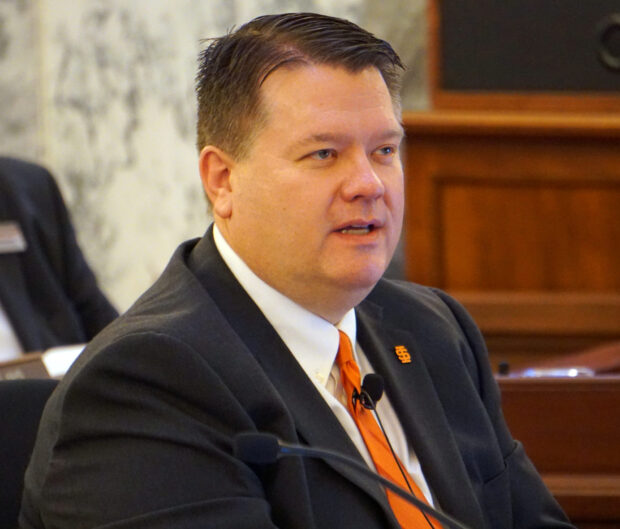With legislators pushing for optional student fees, college and university presidents pushed back Wednesday.

“This is a bad idea,” Idaho State University President Kevin Satterlee said during a State Board of Education meeting.
“We are dabbling in an area that would cause harm,” Lewis-Clark State College Cynthia Pemberton said.
The State Board took no action Wednesday, but that wasn’t the plan anyway. The board wanted to hold a virtual discussion on the idea during its two-day meeting this week, and no changes to the fee structure are likely this year.
But changes could be on the way, as Satterlee noted, whether the presidents like it or not. The idea of student fee opt-outs has gained currency at the Statehouse — partly as an affordability issue, but partly as an extension of a roiling debate over social justice.
Rep. Julie Yamamoto, R-Caldwell, introduced a fee opt-out bill in February. That bill never got out of committee, but the first version of the 2021-22 higher education budget would have required the State Board to determine how fees for student clubs and organizations could be structured “to address the need for access, affordability, and choice.” The higher ed budget is on hold, so it’s unclear whether this language will make its way into the final version.
However, State Board President Debbie Critchfield and Executive Director Matt Freeman have had numerous conversations with legislators on fees. Student club and activity fees are lawmakers’ primary concern.
The scrutiny of student clubs ties into a larger debate over campus diversity and inclusion efforts, which conservative lawmakers decry as costly and divisive.

But Boise State President Marlene Tromp — who has spent nearly two years on the defensive over campus diversity programs — cautioned against a wholesale elimination of student clubs. Elected student government leaders have the authority to fund clubs and organizations, which often have a political or ideological viewpoint. Student government’s job is to fund clubs and organizations, without discriminating based on the groups’ ideologies.
“It’s not about each organization being viewpoint neutral,” Tromp said.
Both Tromp and Pemberton cautioned against undermining the relationship between students and the government leaders they elect to represent them. When students elect campus leaders, Pemberton said, “They’re learning to become engaged citizens.”
University administrators also raised a bottom-line concern: An opt-out plan could kill some fee-supported programs and services.
Boise State runs a bus shuttle system on campus, linking to university classrooms downtown. If students can opt out of shuttle fees — putting all the costs on students who ride the bus — the service would probably not survive, CFO Mark Heil said.
Pemberton predicted a similar fate for Lewis-Clark’s student child care center, saying the closure would hurt women and single parents. “We are going to have a cascade of negativity,” she said.
The State Board will continue its meeting Thursday morning, with another hot-button topic on the agenda: a discussion of freedom of expression on campus. Critchfield and board secretary Kurt Liebich have scheduled a Thursday afternoon news conference “to discuss public higher education in Idaho.” Gov. Brad Little is expected to make introductory remarks.
Check back Thursday for full State Board coverage.
